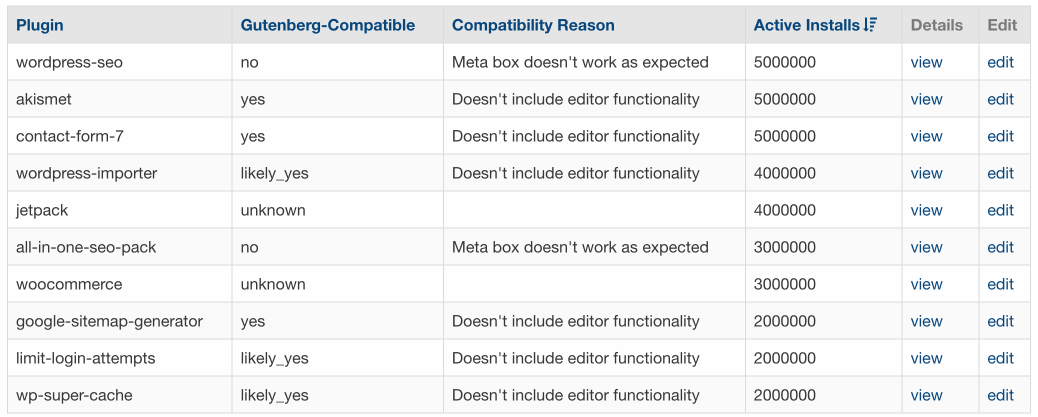One of the keys to a successful roll out of Gutenberg is plugin compatibility. Without it, users will experience unnecessary frustration and hamper enthusiasm of the new editor. In an effort to figure out what plugins are already compatible with Gutenberg, Daniel Bachhuber has created a Gutenberg Plugin Compatibility Database.

The database contains 5,000 plugins that represent more than 90% of the total active install count. Plugins are compatible with Gutenberg if they meet the following two requirements.
- A WordPress user can perform the same functional task with Gutenberg active. For instance, if the plugin includes an ‘Add Media’ button, it’s considered Gutenberg-compatible when it has a block registered for the Gutenberg inserter.
- There are no (obvious) errors when the WordPress plugin is active alongside Gutenberg.
In order to participate in the testing process, you’ll need to register an account on the site. Once approved, testers will be able to create a fresh sandboxed WordPress install on the site and test randomly selected plugins. After a manual review is complete, plugins will be marked as is_compatible=yes or is_compatible=no.
Some plugins are already classified with is_compatible=likely_yes or is_compatible=likely_. As reports are completed, two pie charts that display compatibility results at the bottom of the site update automatically.
Bachhuber estimates that if each plugin takes about a minute to test, they’ll need roughly 75 person-hours to get through the remaining 4,500 plugins in the database. This project is a great opportunity for individuals and businesses to contribute back to WordPress via the Five for The Future initiative.
Ideal testers are those who can review dozens of plugins, but even reviewing a few will help the project. If you’re interested in contributing, check out the project’s GitHub page to learn what’s involved in the testing process. Alternatively, visitors can watch the following YouTube video.
Nothing like watching on oncoming train wreck. Anyone remember VB.NET? Just sayin’